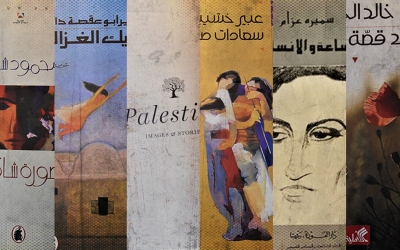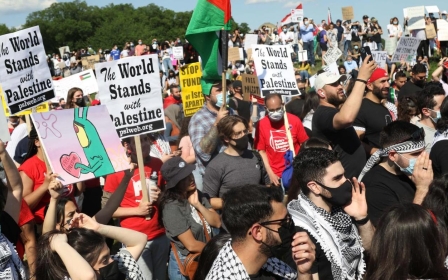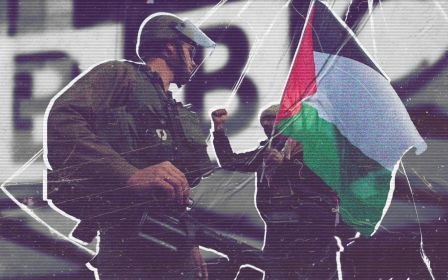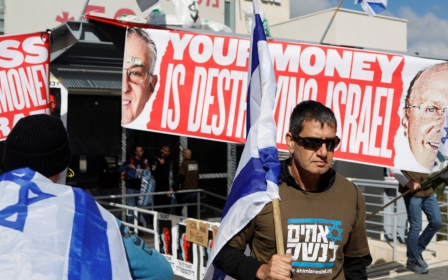Rachel Corrie: Justice for Palestinians is only way forward, say US activist's parents
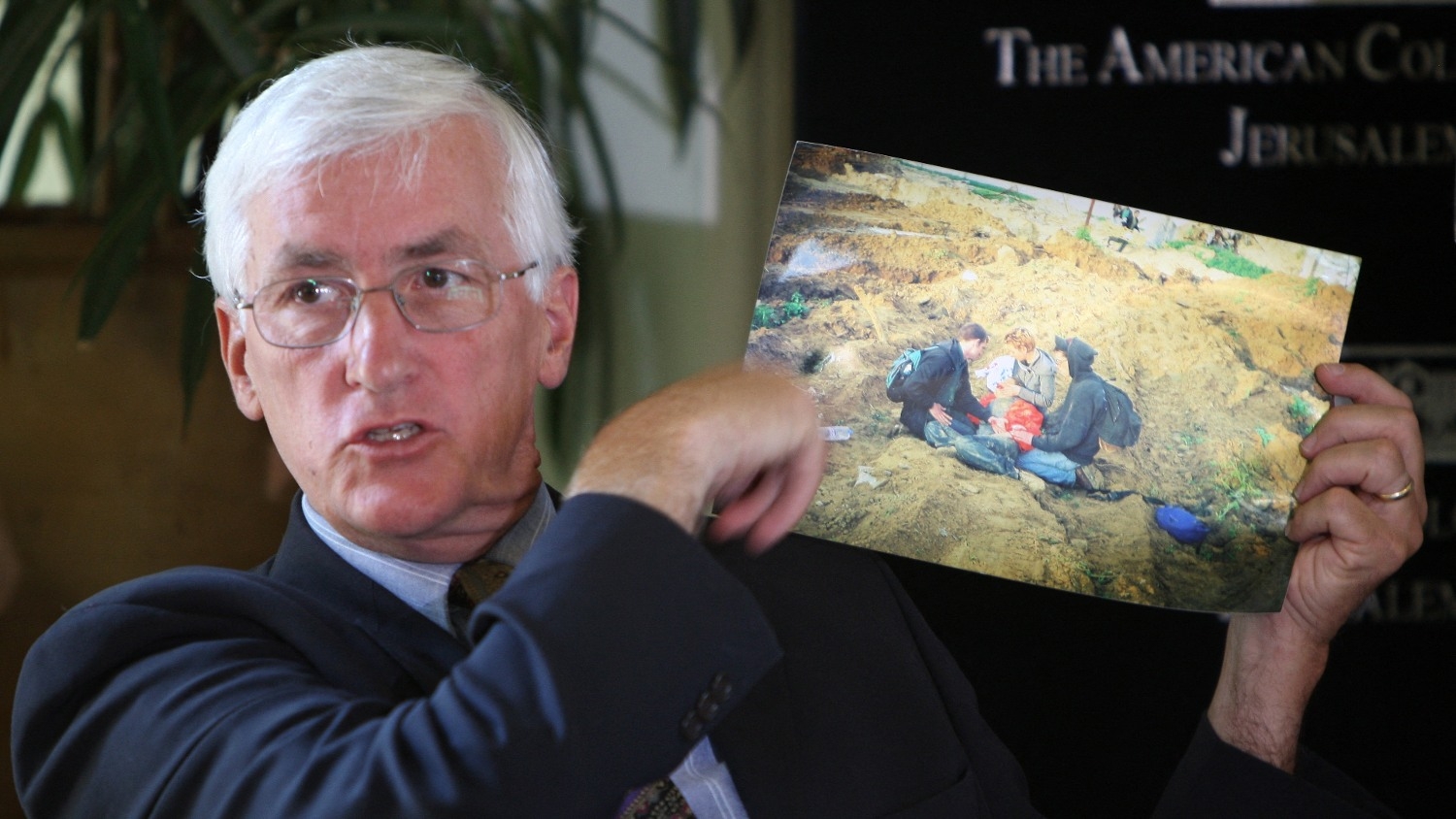
After using every possible path to seek justice for their daughter's death at the hands of Israeli forces in a bulldozer 20 years ago, the parents of activist Rachel Corrie say the only way forward is to continue pushing for the rights of Palestinians.
“If you talk about justice for Rachel, I’m pretty brutal about that. There’s nothing we can do," Craig Corrie, Rachel's father, said on Wednesday during an online webinar hosted by the Jerusalem Fund and commemorating the 20th anniversary of Corrie's death.
"If we want justice for Rachel, what we have to work for is the justice Rachel was trying to find for the Palestinian people when she went there. And that sadly still has a long way to go."
Rachel Corrie was a US citizen and activist who was crushed to death by an Israeli military bulldozer on 16 March 2003 in Rafah, in the Gaza Strip, as she tried to block the demolition of a Palestinian home belonging to the Nasrallah family.
'[Rachel] left us with a great deal of work to do'
- Cindy Corrie, mother of Rachel Corrie
Following her death, her parents went on a more than decade-long pursuit for justice over the killing but found themselves at continuous dead ends.
New MEE newsletter: Jerusalem Dispatch
Sign up to get the latest insights and analysis on Israel-Palestine, alongside Turkey Unpacked and other MEE newsletters
Since her death, however, Corrie's family has received a range of support from both inside and outside of Palestine, and her parents continue to do advocacy and community work inside Gaza.
Cindy Corrie remembered how once Rachel had written to her and her husband saying: "I think freedom for Palestine could be an incredible source of hope for people struggling all over the world."
"She taught us that we can all make a difference. She left us with a great deal of work to do," Cindy said.
US citizens killed without accountability
Rachel, originally from Washington state in the US, had joined a small group of international activists trying to stop the Israeli army from demolishing houses in Rafah during the height of the Second Palestinian Intifada.
Her friends said she was wearing a bright orange vest while in front of the bulldozer and was standing on a mound of dirt, but lost her footing as the bulldozer advanced and eventually ran her over.
During Wednesday's online webinar, Corrie's mother Cindy said that the activist's last words were: "I think my back is broken."
Rachel's death made her a symbol of the Second Intifada, and her story was dramatised on stage in a dozen countries and told in the book, Let Me Stand Alone.
Her parents shared on Wednesday the numerous ways in which they tried to seek justice. After hearing that Israel promised an investigation into her death, the Israeli military closed its probe without finding any person guilty or responsible for the killing.
The family also tried pushing for a US investigation with no luck. The Department of Justice in 2006 refused to open an investigation.
After failing to obtain a US investigation, they tried to sue Caterpillar, the company that manufactures the bulldozers, but that lawsuit was dismissed in the American court system.
They then tried to file a case in Israel, which ultimately failed. The Israeli courts ruled that the state of Israel cannot be responsible for acts that take place during wartime.
Building support
Corrie's parents had noted the parallels between their daughter and other American citizens killed at the hands of Israeli forces, including Palestinian-American journalist Shireen Abu Akleh and Palestinian American Omar Asaad.
“Our government should be acting to support these Americans who are harmed," Cindy Corrie said.
Abu Akleh's family had similarly engaged with the US government, including the State Department, and called for a US investigation into the journalist's death, which came during an Israeli raid on the Palestinian town of Jenin in the occupied West Bank.
In the State Department's latest human rights report, Abu Akleh's death is mentioned down in the second section, and despite independent investigations saying she was deliberately targeted, the administration did not label it an extrajudicial killing.
Meanwhile, the death of Asaad was not mentioned in the report.
Although the paths to achieve justice for the deaths of their loved ones have found little to no success, there has been a shift in public opinion over the past few years.
A Gallup poll from last week found that more US Democrats sympathise with Palestinians than they do with Israelis.
Cindy Corrie said that activists and rights groups should use this momentum to sway members of Congress and the US government to introduce more legislation that supports Palestinians as well as punishes Israel for rights abuses against Palestinians.
“We know that the discourse has changed in this country and that people are in growing numbers supportive of Palestinians and of Palestinian rights,” she said.
“But it’s not getting through yet, well enough, to members of Congress. And it’s going to take time.”
Middle East Eye delivers independent and unrivalled coverage and analysis of the Middle East, North Africa and beyond. To learn more about republishing this content and the associated fees, please fill out this form. More about MEE can be found here.


